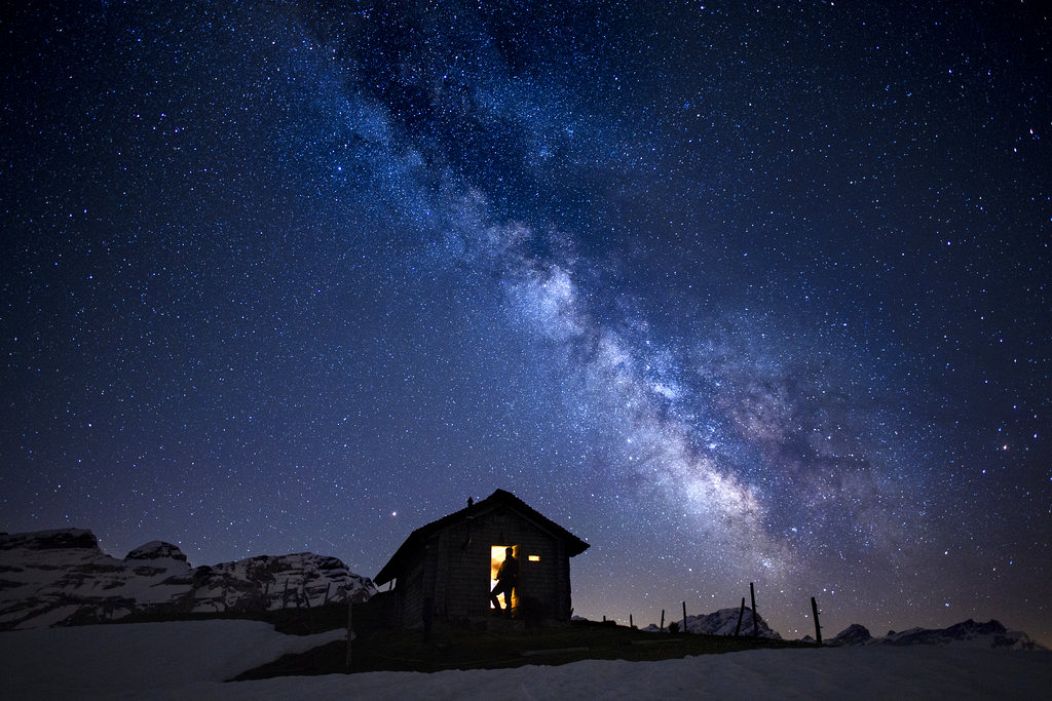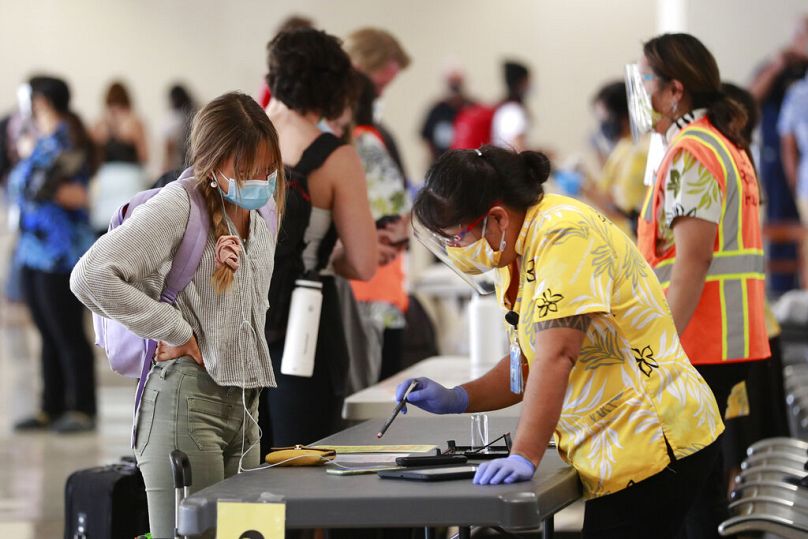Hit hard by the global coronavirus pandemic, the travel and tourism sectors are expected to rebound from 2021.
Hit hard by the global coronavirus pandemic, the travel and tourism sectors are expected to rebound from 2021 – with a new kind of experience economy at their heart.
 ADVERTISEMENT
ADVERTISEMENT
 ADVERTISEMENT
ADVERTISEMENT
‘Conscious travel’ is set to rise in prominence, amid growing environmental awareness and a hunger for holidays that leave a positive footprint. The traveller of tomorrow will increasingly want to live like a local, deeply immersing themselves in different cultures and customs. They'll also want to get away from the busy urban hubs and into the wilderness of less populated, rural areas, which could bring a spread of wealth to those local communities.
As Euronews published its Travel and Tourism Trend Report on Thursday: 'Travel after 2020: What will tourism look like in our new reality?' we heard from top industry leaders and thinkers to discuss what the future holds, and how brands and destinations need to adapt to the changing behaviours and mindsets of consumers.
The report cited six key travel trends emerging after 2020:
- Wilderness tourism: celestial escapes
- Nomadic tourism: campervan journeys
- Eco tourism: "cultivacations"
- Authentic Tourism: community immersion
- Wellness Tourism: longevity retreats
- Mindful Tourism: co-working camps
Euronews reporter and Trend Report co-author Damon Embling spoke to Jenny Southan, Founder and Editor of Globetrender and Trend Report co-author; Amanda Hills, President, MMGY Hills Balfour; Chris Greenwood, Senior Tourism Insight Manager at VisitScotland and Michel Julian, Senior Officer, Tourism Market Intelligence & Competitiveness, UNWTO about these key trend. (The full discussion can be viewed in the video player above).
The need to "build back better"
The coronavirus pandemic has forced many of us to work remotely and digitally innovate. Jenny Southan from Globetrender said: "After months of cabin fever, there has been a universal hunger for wide open spaces and unpolluted skies, especially for people who live in cities during the crisis."
And as a result, our idea of luxury travel has changed:
"It seems that so many of us live in cities, we don't get to see the night sky as we should." Said Southan, "and so actually, being able to see the Milky Way on a clear, dark night has become a luxury, so our perception of what luxury means is changing."
Chris Greenwood from VisitScotland believes that out of every crisis comes an opportunity. He said on Thursday, "the financial crisis of 2009 had significant impacts on a number of businesses. But we saw some major developments that came out of it. Think of things like Uber and also TripAdvisor, you know, these kind of digital innovations that developed. Now is a great time to build back better."
"Sustainability is an absolute necessity to travel"
Left feeling disturbed and inspired by the recent David Attenborough documentary, Southan said "sustainability is an absolute necessity to travel." And our panel of experts agreed that the modern traveller wants this now more than ever.
"Before the pandemic, nothing we were doing in relation to travel really was sustainable. It was madness." Said Southan. "The fact that we've all been forced to stop, it's so important. It's truly demonstrated how the planet can recover really very quickly if we allow it to."
Amanda Hills from Hills Balfour agreed and believes there will be an increase in 'slow travel' as the world emerges from the pandemic. She said on Thursday: "I think it's so exciting because we have this opportunity to press this great reset button."
Slow travel set to increase
Hills said more freedom and opportunities to work remotely will help to "flatten out peaks in seasonality" which put strain on tourism destinations at the height of the holiday season. This causes tensions for locals who feel overwhelmed by over-tourism, and some cities were putting plans in place before the pandemic to offset the effects of this.
"Those peaks have been such a difficult issue for tourism in the past. And we've now got this opportunity because of the nomadic traveller. Because, in fact, you can work a little bit more when you're on the road. That's going to give so much more flexibility and freedom when we're developing our products going forward." Said Hills.
The rise of digital nomads
More and more people have seen the opportunity to work remotely during the coronavirus pandemic, which Southan predicts will increase demand for 'mindful tourism' and co-working camps.
Southan explained: "Simply being abroad will be the mindful alternative to booking annual leave for a designated one week holiday where you're lying on the beach trying not to check your emails. So co-working camps will allow people to be productive, exchange ideas and building activities that leave you nourished and inspired."
And some countries are ahead of the curb with year-long digital nomad visas in exotic destinations like Bermuda. But Greenwood added that Europeans don't need to travel far to experience a mindful working environment: Scotland is abundant in remote working locations waiting to be soaked up by a digital nomad.
"You have been witnessing a more responsible tourist that cares about the environment, about a positive footprint, that wants to contribute." Said Michel Julian from the UNWTO. "They want to feel that they have contributed to a positive development of tourism spreading those benefits."
"It's really looking at what consumers want and making sure that you can fit your product to suit." Concluded Hills.
Remember to read the full Travel and Trends report here.












